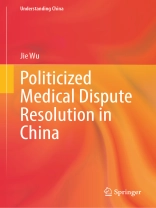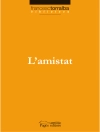This book investigates the politicization process of social dispute resolution and its unintended consequences, under the context of over 70 percent of China’s public hospitals have experienced hospital violence, with patients acting violently toward medical workers to express anger, protect their rights, or monetary reasons. The examination of interactions between patients, hospitals, and government representatives in China is based on fieldwork conducted in a Chinese mega-city from 2015 to 2017, combining over 700 archival mediation cases, 156 hospital violence cases and their legal outcomes, and 72 in-depth interviews with patients, mediators, and healthcare professionals. It examines the rise of mediation and finds how the party-state utilizes the traditional mediation channel to address emerging social disputes, and the art of persuasion in mediation and finds how political stability and moral concerns influence and shaped their strategies and mediation outcomes. The first-hand data and valuable archival documents help depict citizens’ social dispute resolution process and reflect another facet of non-electoral political participation in China, also enriching the understanding of evolving government strategies in dispute resolution. This book is reader-friendly and could engage a wide and dynamic audience of researchers, healthcare professionals, and readers interested in medical sociology, regional study, or political participation in China.
İçerik tablosu
Introduction.- politicized social dispute resolution in china.- hospital violence.- everyday politics of meditation.- From right protection to monetary bargaining.- Conclusion.
Yazar hakkında
Dr. Jie WU is assistant professor of political science at the Fudan University. She received Ph.D. from the University of Hong Kong. She obtained her B.A and M.A (Political Science) degrees from Fudan University. Her research interests revolve around health policy, contentious politics, and civil society in China. Her prior research and study were supported by the Swire scholarship and Harvard Yenching Institute.












